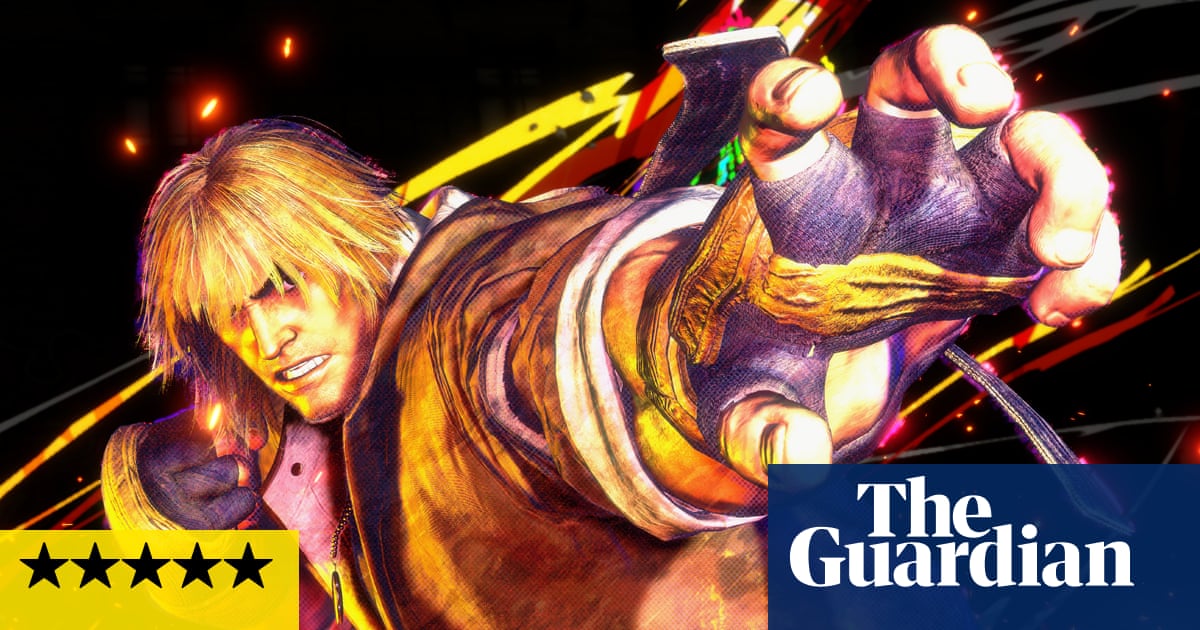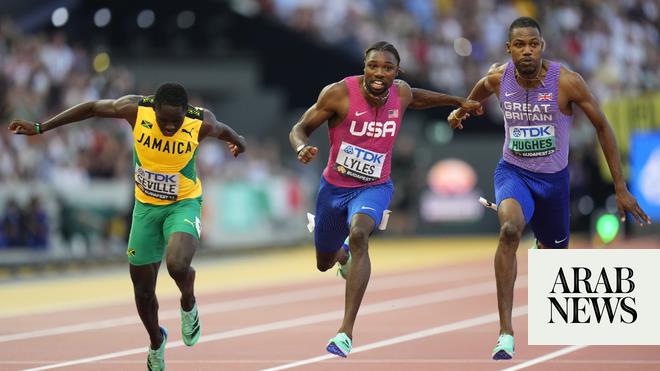
When Street Fighter V – the previous entry in this instantly recognisable fighting game series – launched in 2016, it was missing a laundry list of standard features (although it did eventually get better). Street Fighter 6, on the other hand, feels heartily robust from the word go. It’s bursting at the seams with things to do, assured in its gameplay, and wrapped in a stylish, colourful, confident swagger that the game can absolutely back up.
This time around, the basics are properly accounted for: there are versus and arcade modes, an options-rich training room, and some respectably detailed tutorials that dive into the nitty-gritty of fighting game fundamentals. A new addition is World Tour, a sprawling single-player mode that lets you create your own (potentially horrifically proportioned) fighter and lets them loose into a universe where just about everyone is ready to throw down at the slightest invitation.
Unlike standard fighting game story modes, World Tour plays out more like an open-world game, along similar lines to Sega’s Yakuza series; you’ll explore a city, level up your fighter’s stats, wear your choice of stylish (or stupid) clothes, and learn fighting styles from the series’ classic cast, customising movesets to create an avatar you can later take online for extremely unbalanced, if entertaining, battles.
Side-quests act as piecemeal interactive tutorials for novice fighters, while flashy cutscenes and goofy yet entertaining writing help flesh out Street Fighter’s outlandish world. Fighting hordes of disposable goons soon gets annoying, though, and it’s tiresome to hit a wall where no amount of skill can make up for dealing near-to-no damage until you go a level up – but as a fun diversion and a gentle on-ramp for newer players, it’s still a surprisingly good time.
But the meat and potatoes of fighting games is in one-on-one competition, and here, too, a welcoming hand is extended to beginners. Simplified “modern” controls are available alongside the traditional six-button system: newer players and veterans alike can execute special moves faster and more consistently at the press of a button, with slightly reduced damage a decent tradeoff for ease of use. For my taste, though, assisted combos (where holding down a trigger as you mash buttons automatically produces a stylish and often inescapable set of attacks, as long as the first hit lands) go a bit too far.
Whatever control scheme you’re using, the classic rock-paper-scissors rhythm of carefully considered combat remains utterly mesmerising. If you’re having issues reading the fast-moving action, optional eSports-style commentators – despite occasionally sounding like 90s-era Fifa robo-announcers – can really help in understanding the thrill of mind games and spacing, especially against human opponents, though in honesty they’re also just really exciting to listen to.
This iteration’s main gameplay additions are Drive Impact and Drive Parries, universal moves that let any character burst straight through enemy attacks or easily nullify incoming assaults. Flashy and powerful, they’re another risky tool in the belt to help bust out of a bad situation or capitalise on opportunities for major damage. There’s a solid and varied cast of characters available to suit a multitude of playstyles, too: standbys like Ryu, Chun-Li and Guile mix it up with newcomers like Gladiator Marisa, drunken master Jamie and my personal favourite, ballet-slash-judo-practitioner Manon.
But there’s something even more impactful than spectacular graffiti-spray moves or new characters: the online component actually works, and works well, right out of the gate. Redesigned rollback netcode means incredibly stable matches against fighters on other systems or on the other side of the planet are – though not frame-perfect – still largely playable (even from Australia, of all places), at least during the reviewer test phase, making it quick and easy to get sets going.
It’s difficult to overstate how important good online systems are to a modern fighting game, widening the potential pool of competitors while ensuring the actual game remains responsive and reactive. Speeding up finding and fighting opponents allows for a quicker, even more intense loop of learning, testing and modifying your playstyle, and it’s this that ultimately has me chomping at the bit to just keep playing SF6. It’s the rare game where losing is still fun, because it all feeds the drive to improve, to find your warrior’s path and maybe rack up some sweet wins along the way.
It takes a lot to reinvent a 30-plus-year-old franchise while keeping step with tradition, and Capcom has succeeded admirably. Hopefully the still-to-come monetisation schemes are reasonable (details hadn’t been fully announced at the time of writing) and the netcode remains smooth, because the king of fighting games, Street Fighter II Turbo, is on notice: here comes a new challenger.












